Teka Group,
German Origin
Teka and Sports
Teka is a reference in the history of sponsorship in sports. The contribution of the company has seen several of the most relevant moments of sport throughout its 100 years of history.
During this time, Teka’s support in different areas has built some of the most remarkable stories of modern sports, becoming a leader brand and defining an era in this field.
First brand sponsoring a football team in Spain
Everything began in 1981, when Teka became the first brand to sponsor a football team in Spain. It was also one of the first football team sponsorships in Europe. On December 27th, the Teka logo showed off on the Racing de Santander football team shirt in a Spanish Liga match against Real Madrid C.F. at the Santiago Bernabeu stadium. This match, the 17th of the Spanish League, ended with a 4–0 victory for Real Madrid. Racing de Santander finished that season in 12th place in the championship.
The act of displaying advertising on a professional football league shirt had no precedent until that moment. Racing de Santander had to request authorization from the Spanish Football Federation to print the shirts with the German brand name. This gesture changed the history of Spanish football forever. Shortly after, many other brands began sponsoring football teams. At that time, Teka paid around 60,000 euros for the sponsorship of the whole season.
Over the following years until 1989, Teka was the Racing de Santander sponsor, featuring the company’s logo on the shirt. For almost a decade, they wore the German brand’s logo design, managing to stay in the top division of Spanish football with team players only from Cantabria, a northern region of Spain, mostly.
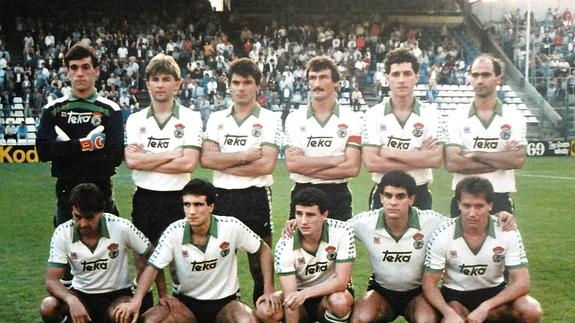
Real Madrid FC sponsorship
In 1992, another significant moment of sports sponsorship took place. Teka became Real Madrid C.F. official sponsor. At that time, the Real Madrid team was still living the last years of the well-known Quinta del Buitre, with Emilio Butragueño leading an unforgettable generation of players with Míchel, Sanchís, Martín-Vázquez, and Pardeza. Another key player for the team arrived that same season as a new star, Iván Zamorano, from Chile. At the same time, Robert Prosinecki, one of the standout signings for the club in recent years, returned to play after an injury.
Two Spanish leagues lost in the last minute in Tenerife marked those years, with two matches full of controversy and mistakes but also with excitement until the end. Jorge Valdano was the Tenerife team coach then. He joined Real Madrid soon after, in 1994. It was in 1992 as well when Real Madrid formed one of the best lineups in history with a remarkable style, winning the Spanish league and achieving other memorable victories, such as the 5-0 triumph over FC Barcelona at the Santiago Bernabéu stadium.
It was in 1994 that the legendary Real Madrid player Raúl González Blanco made his first appearance. In 1996, the Italian Fabio Capello signed as the new coach. The same year, with Teka sponsorship, the white team brought together a cast of legendary football stars. Mijatovic, Suker, Roberto Carlos, and Seedorf joined the club, along with a roaster of players already in the team like Fernando Redondo, Hierro, Amavisca, and Cañizares. Additionally, a new generation of talents led by Raúl González with names such as Guti, Álvaro Benito, and Víctor Sánchez emerged.
The team achieved good results that season, winning the Spanish league title playing against F.C. Barcelona with a young Ronaldo Nazario as part of the Catalonian team. In the following season, Jupp Heynckes became the new coach, and the club signed some relevant players like Fernando Morientes, the Brazilian Savio, or the French Christian Karembeu. One of the milestones of the club took place that season when the team won the club Seventh European Cup. On May 20th, 1998, at the Amsterdam Arena, Real Madrid C.F. defeated Juventus of Turin 1-0 with a Pedja Mijatovic goal and a lineup including Zinedine Zidane, Inzaghi, and Del Piero.
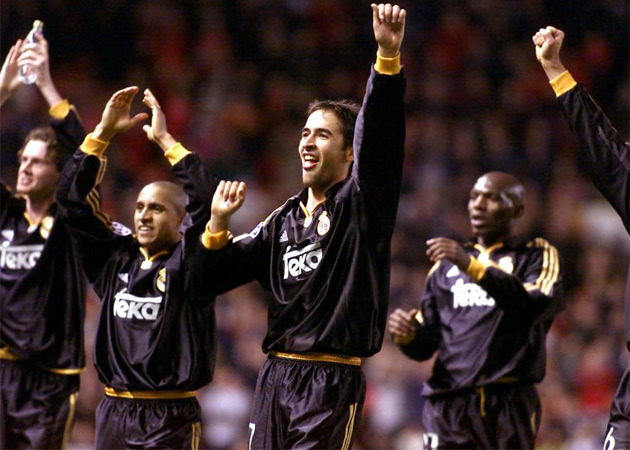
The title was the end of 32 years trying to win the European Cup without success. The following day after the match, Real Madrid celebrated the title beside the goddess Cibeles statue in Madrid, the no-official symbol of the club. More than half million people attended the celebration in the streets of Madrid.
In 1999 Real Madrid signed Vicente del Bosque as the new coach with other significant signings, like Steve McManaman, Nicolas Anelka, Míchel Salgado, and Iván Herrera. It was also the debut of another legendary player: Íker Casillas. The Madrid-born player made his debut in the top division with just 18 years old in a match against Athletic de Bilbao.
Shortly, on May 20th, 2000, at the Saint-Denis Stadium in Paris, the club experienced another historic moment. The final match of the European Cup took place between Real Madrid and Valencia C.F. With a 3-0 victory for the Real Madrid, winning the eighth European Cup after only two years of the seventh. Morientes, McManaman, and Raúl scored in that unforgettable match.
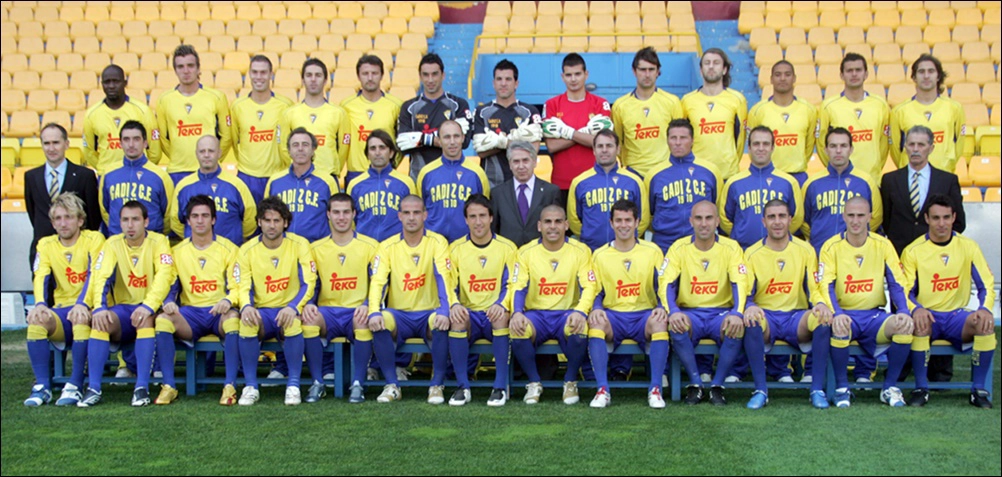
Cadiz FC sponsorship
Teka became Cádiz C.F.’s main sponsor for the 2007-2008 season, with its logo on the Andalusian club shirt. Cádiz C.F. is one of the teams with longest history in Spanish football, founded in 1910.
Teka found its place in the basketball courts with one of the most fruitful relationships in Spanish sports, together with the sponsorship experience in football. You can’t help thinking about Real Madrid basketball jerseys without the Teka logo, part of two of the most successful periods in the basketball club’s history. Furthermore, that jersey represents an era remembered both by the fans of the white club and by other fans and teams of basketball worldwide.
First period: 1992-2000, Real Madrid Teka
These years mark a milestone for the team, and it is still one of the most cherished times by their supporters. A prolific period where the club managed to bring together unforgettable names on the court. In 1992, Teka sponsorship began, and soon after, the team became Real Madrid Teka. The club won the ACB League twice (1993, 1994), and after chasing the European title for 15 years, they finally reached another peak moment with their 1995 victory in the Euroleague.
At the same time, Teka arrived at Real Madrid, Arvyas Sabonis was signed. It was a key player in the strategy that brought the team back to the top positions in basketball. After him, Joe Arlauckas and other great names, such as José Miguel Antúnez or Chechu Biriukov, formed part of the team, representing a golden era under coach Clifford Luyk’s commands. The arrival of more star players like Alberto Herreos and Dejan Bodiroga added prestige to a club that achieved two European Cup Winners’ Cups, three Spanish leagues, and several tournaments in these seasons, for a total of 15 titles.
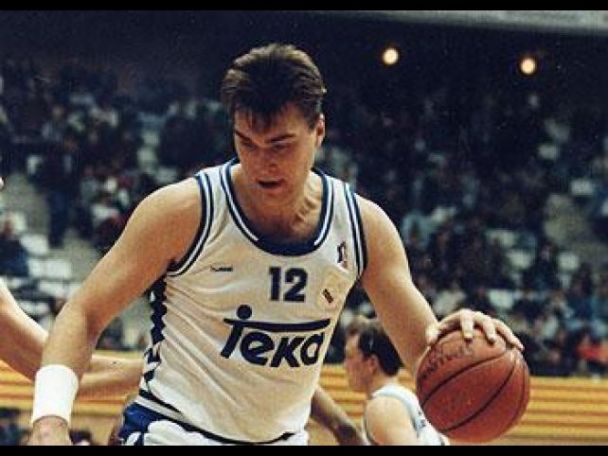
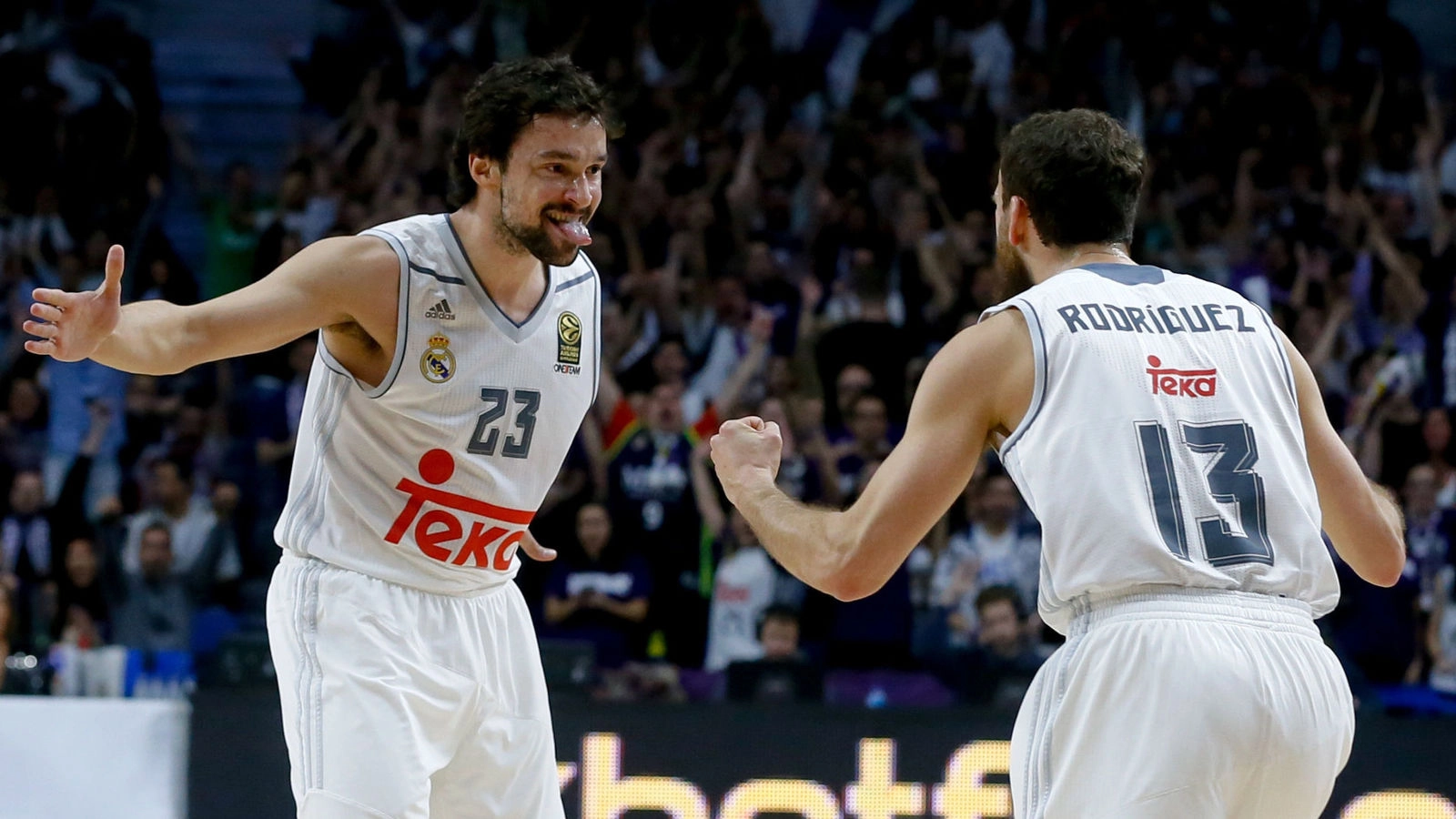
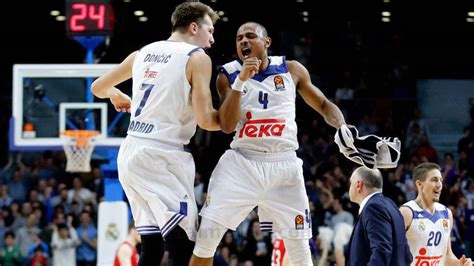
Second period: 2014-2016, Real Madrid de Baloncesto
A new period began between Teka and the former Real Madrid de Baloncesto. Teka stands as the sponsor with the most titles in the history of the Madrid-based club, and this period proved to be the best example. Florentino Pérez, on behalf of the club, and Arturo Baldasano, president of Teka, signed an agreement that was the beginning of a phase of numerous victories for the team.
The team got its prestige in Europe back by securing the eighth European Cup and more titles, including two league championships, the Spanish Supercup, two Copas del Rey, and a FIBA Intercontinental Cup. The fans experienced remarkable moments, like the Final Four final against Olympiakos, settled with the Spanish team’s victory at the Palacio de Deportes in Madrid.
The club signed renowned players such as Rudy Fernández, Felipe Reyes, Jaycee Carroll, Sergio Rodríguez, Luka Doncic, and Sergio Llull. They wore a jersey that emerged as part of the history of basketball in Spain and around the world, representing both the club and the brand values and giving us some of the most legendary moments in sports.
After starting its history in sport in 1975, Teka launches a new challenge, extending its support to Spanish cycling in 1976. Spanish cycling in 1976. José Gómez Casuso, Teka’s manager, acted as a catalyst, as he had already done in the case of GD Teka Santander handball team. After coinciding with the cyclist and then great fan Santiago Revuelta, they created GD Teka Santander. Revuelta, they created GD. The team was based in Cantabria and grew until it reached its best moments during the 80s. during the 80’s.
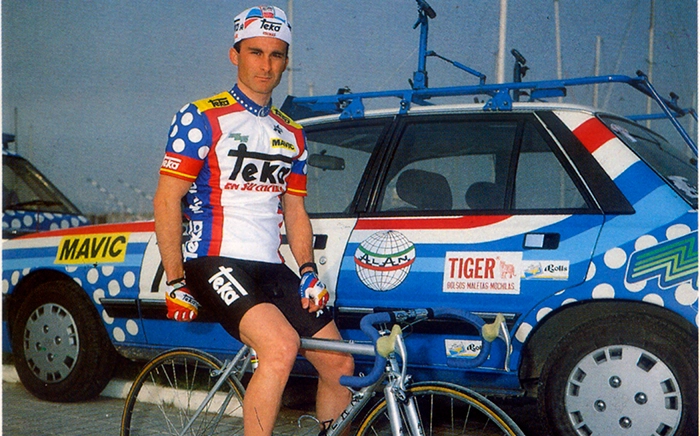
Grupo Deportivo Teka
The team found its way into the Spanish cycling races, gaining recognition. In 1977, they won the Vuelta a España in the team category, along with other races such as the Vuelta a Cantabria, Lérida, and Levante. They began to be a regular presence in the cycling scene and started signing national and local cyclists, as well as international ones. Names like the Spanish Julián Anddiano or the Portuguese Joaquim Agostinho found their place and secured victories with the Teka team.
The early 1980s saw the takeoff of the GDD Teka. In fact, cycling followers look back on these years with certain nostalgia because Spain began to be well-known in international competitions. It was an exciting time for the sport, and many supporters emerged during this decade. Many of the most renowned cyclists achieved their triumphs then and in the 1990s. Teka was a good example of these golden years.
In 1982, the now-famous Marino Lejarreta won the Vuelta a España with the Teka logo on his outfit. But his teammates had already obtained victories in other races, and new signings followed. Noël Dejonckheere or Reimund Dietzen were some of them, and subsequently, the team brought in experienced riders from Colombia for the first time in Spanish cycling, such as Edgar Corredor.
By the mid-1980s, GDD Teka’s significance in cyclism was clear, and they had one of the highest national budgets.
The GD achieved several victories in national competitions, including the Vuelta a España as a team in 1984. In 1986, GD Teka was chosen as the Best Professional Team of the Year, and by then, they had the largest team in the team’s history. Their participation in the Tour de France in the following years also resulted in victories on different stages.
The arrival of the 90s brought several events that led to the end of the relationship between Teka and the team. The GD Teka secured more than 500 victories throughout its history and featured some essential names in national cycling, such as Marino Lejarreta, Peio Ruiz Cabestany, Eduardo Chozas, Miguel María Lasa, and Marino Alonso.
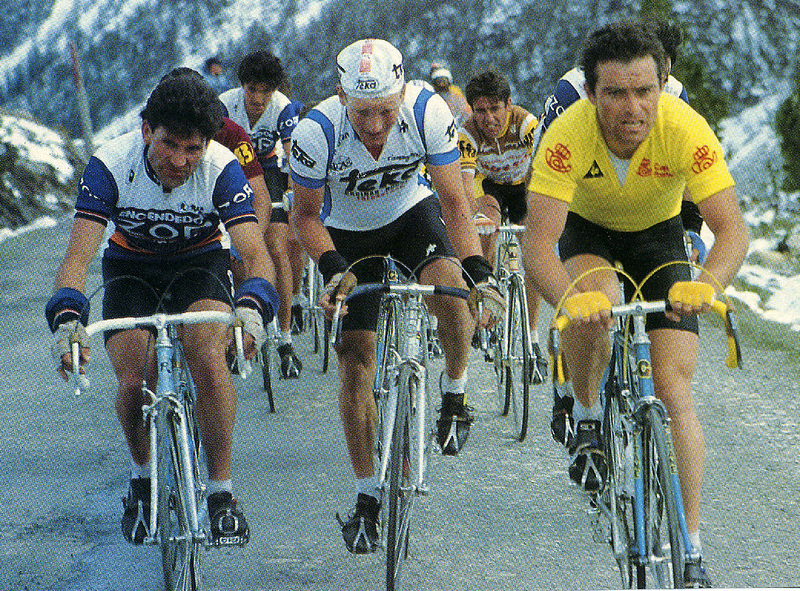
Teka’s commitment to sport reaches several disciplines, and it is easy to think about the company logo as part of some of the most glorious moments by Spanish teams. Handball holds a special place in this history because Teka began its journey into sports sponsorship with it in Cantabria, northern Spain, in 1975. The handball team Club Balonmano Cantabria was born that year as Grupo Deportivo Teka Santander, with the financial support of the company. Little did they know at the time that a local, second-division team would leave a mark not only on the history of handball but also on the history of Spanish sports.
Grupo Deportivo Teka Santander: 1975-1995
Santander, home of Teka’s first factory in Spain, hosted Grupo Deportivo. Sponsoring a club as a brand was never done before in the country, so both parts started a new common path, sharing their love for sport and fandom. A joint effort and devotion that would overcome the usual barriers found when starting from scratch would rub shoulders with top teams with a higher reputation and budget. José Antonio Revilla created the club, and José Gómez Casuso, Teka’s representative, arranged the team’s sponsorship.
The company became so involved that soon the team went down in history aas “El Teka.” Together with the human factor, excellent players, unwavering fans, and successful management, the team embarked on a swift career. After several attempts that left them close to reaching the Honour Division in Spanish handball, they finally made it in the 82/83 season. In 1985, “El Teka” played its first European competition, and in the 88/89 season, they won the Spanish Copa del Rey. By the end of the decade, the club had already turned into one of the top handball teams.
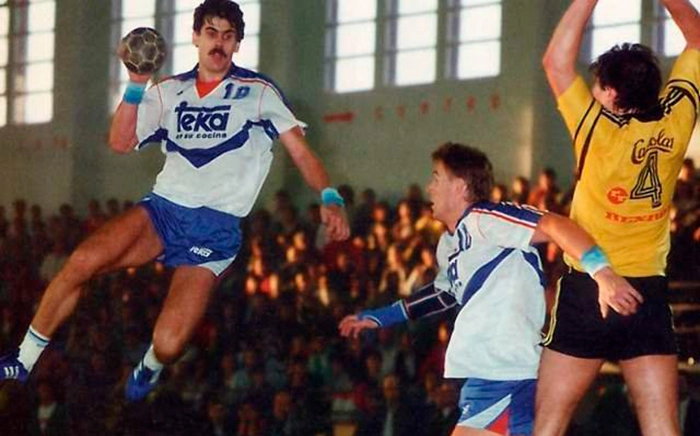
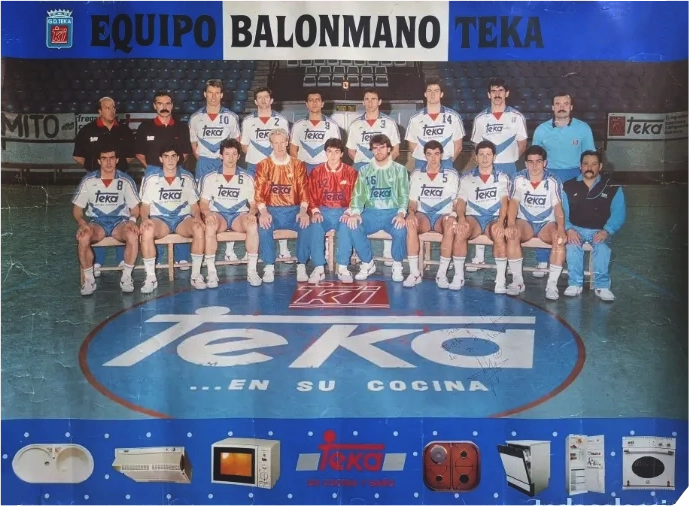
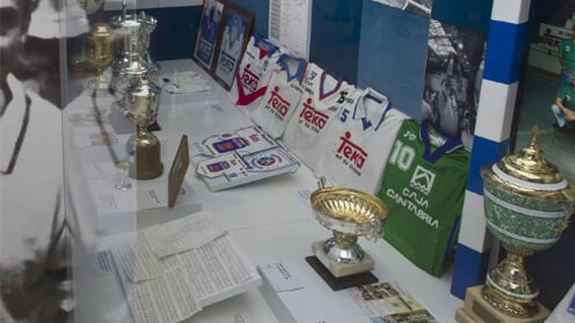
Teka Cantabria 1993-94: when we were the best team
The 92/93 season had a few new signings, such as Talant Dujshebaev, Mijail Jakimovic, and Mateo Garralda, key players for the future of the team, together with other players that already created a winning team. They achieve three consecutive top competition victories with the Supercopa de España, the ASOBAL Spanish League, and the IHF Cup (European handball competition). It was the first time a Spanish handball team won a European title. Names like Mats Olsson, Alberto Urdiales, José Javier Hombrados, Julián Ruiz, Roddrigo Reñones, Muñoz Melo, and Javier Cabanas became part of handball history.
During 93/94 season, the team won the ASOBAL seasonal league and the European Cup (Champions League), showing an unstoppable improvement since its beginnings. The documentary “Teka Cantabria 93/94. When we were the best team” (FID, 2022), features footage and interviews about how the club made history in Spanish Sports. The film pays tribute to the team’s journey to achieve their victories an both trophies.
In 1995, the brand and the team ended their relationship, only to come back a few years later, in 1999. Eventually, the club disbanded in 2008, concluding a career that brought Spanish handball to the top positions. Their list of victories includes the European Cup, the Club World Championship, two European Cup Winners’ Cups, several ASOBAL League titles, several Copa del Rey trophies, the Spanish Handball Supercup twice, and four ASOBAL cups.
Santander’s Sports Museum in the Palacio de Deportes of the city dedicated one of its modules to the team as a tribute, praising all the people who brought the city to the peak of European competitions through handball.
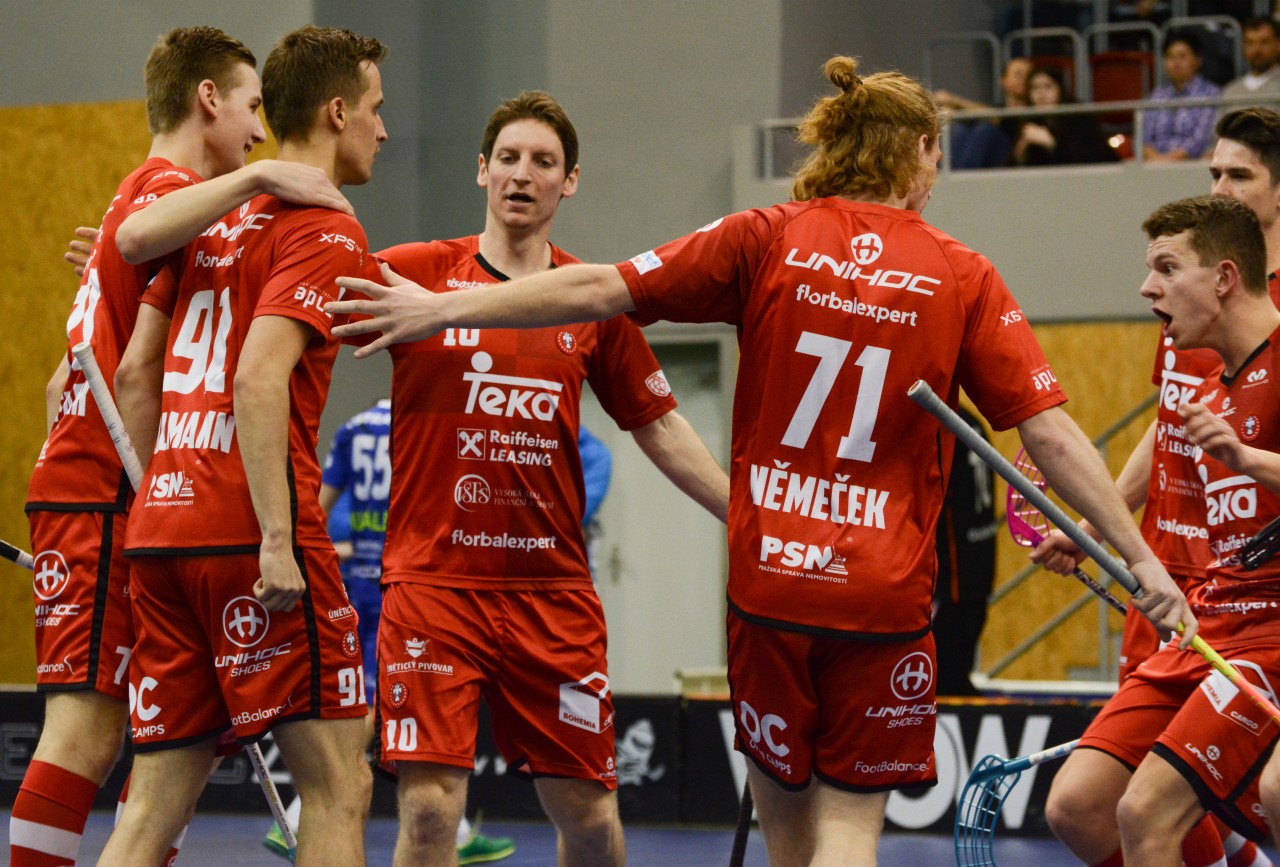
Roller Hockey
Teka has been present as in the Czech Republich National Superleague of Roller Hockey as the main sponsor of the Tatran Teka Stresovice.
Teka’s commitment to sport reaches several disciplines, and it is easy to think about the company logo as part of some of the most glorious moments by Spanish teams. Handball holds a special place in this history because Teka began its journey into sports sponsorship with it in Cantabria, northern Spain, in 1975. The handball team Club Balonmano Cantabria was born that year as Grupo Deportivo Teka Santander, with the financial support of the company. Little did they know at the time that a local, second-division team would leave a mark not only on the history of handball but also on the history of Spanish sports.
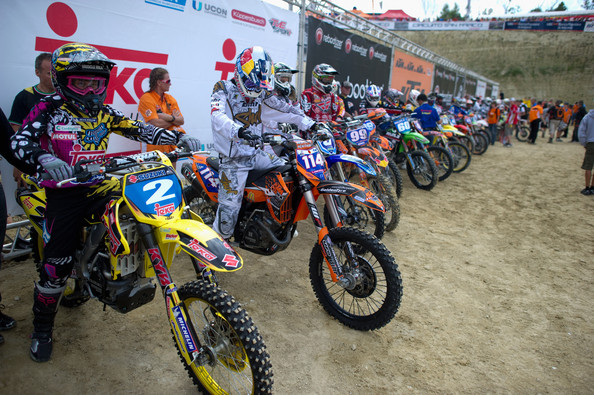
Teka’s FIM Motocross World Championship
Teka started his adventure into the world of motorcycling in 2008 with the sponsorship of the Suzuki motocross team. They became one of the most honored teams that year. In this way, the brand decided to lend its support, extending its close collaboration with sports. But this step into motocross also proved to be an excellent way to introduce the mark to the public in Northern European countries since Teka was already well-known in Germany, Portugal, or Spain. The Teka Suzuki WMX1 teams at that time included names like Steve Ramon and Ken de Dycker. Both climbed the podium as second and third, respectively, in the World Motocross Championship that year.
Shortly after, Teka began other of their sponsorship-decisive moves. In 2009 and 2010, the brand became one of the main sponsors in the FIM Motocross World Championship in the MX1 and MX2 categories. The well-known international competition had a significant number of followers around the world, making it a perfect showcase for sports and sponsor brands, especially in Central and Northern Europe. The competition takes place in different countries and has wide TV coverage, making motocross one of the most exciting sports to watch.
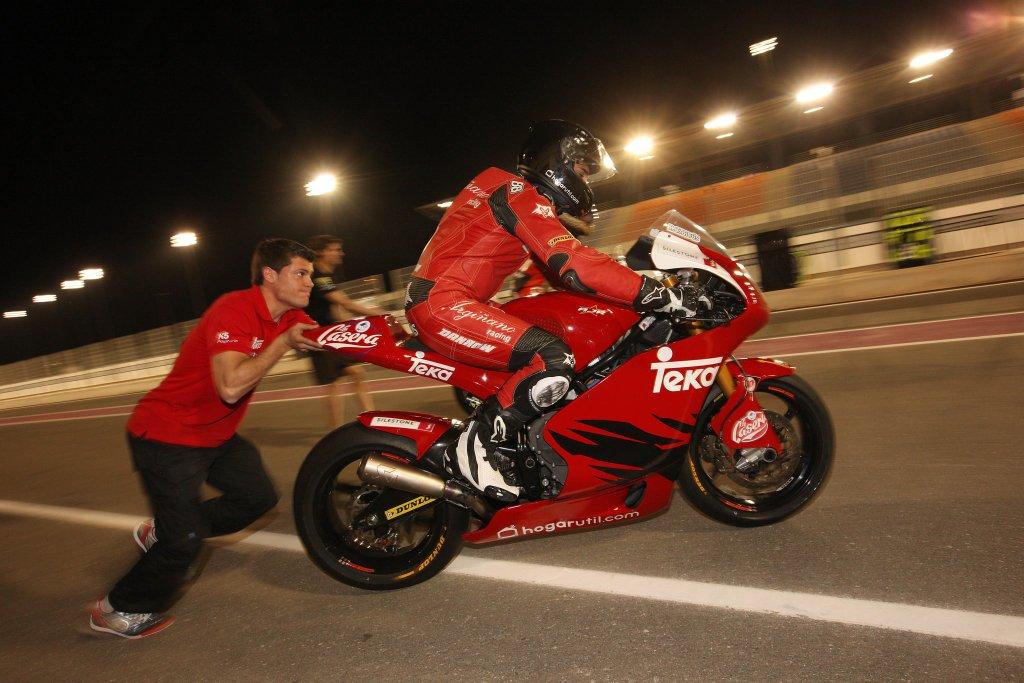
Teka enters Moto2 in 2012 through AGR Team
Teka joined the Moto2 premier competition through the sponsorship of AGR (Arguiñano and Ginés Racing Team), owned by Karlos Arguiñano. Born out of a passion for motorcycling, Ginés Guirado, mechanic for more than 20 years of pilots like Jorge Martínez “Aspar” or Ángel Nieto, joined forces with Karlos Arguiñano, chef from the Basque country. Together, they focused their efforts on finding young talents for the team with a promising future. In 2012, AGR successfully started its road to the best competitions and reached the Moto2 category of the Motorcycle World Championship with Teka’s sponsorship. The rider Ricky Cardús qualified for the World Championship with the AGR Team.
Teka’s intense and close relationship with sports during those years is evidence of the brand’s commitment. Teka has supported new teams and young talents in different sport disciplines to move together towards top competitions.
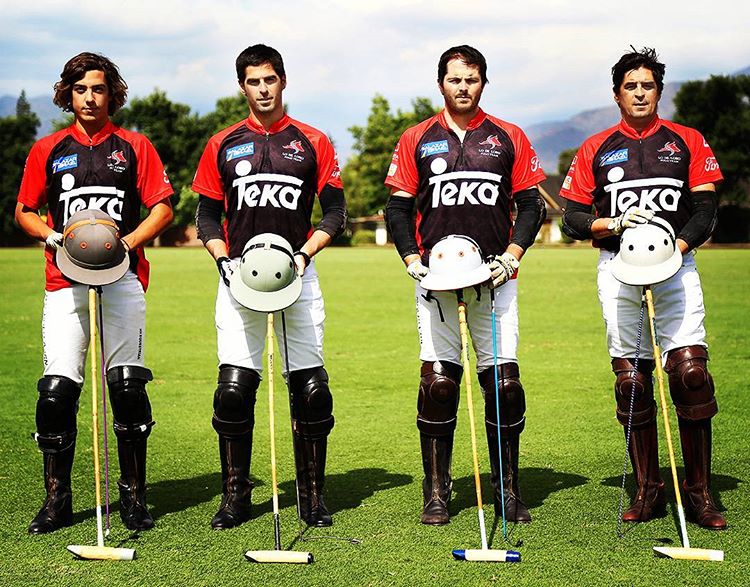
Other Sponsorships
Teka has supported sports for more than 60 years, not only football and basketball, but also other kinds of sport disciplines around the globe. The brand was in Rally Dakar in Chile, Rally Desert Challenge, Polo or Ice hockey.
In 2014 Teka was in Sochi Olympic Games, sponsoring Hungarian double medal winner Imre Pulai.
